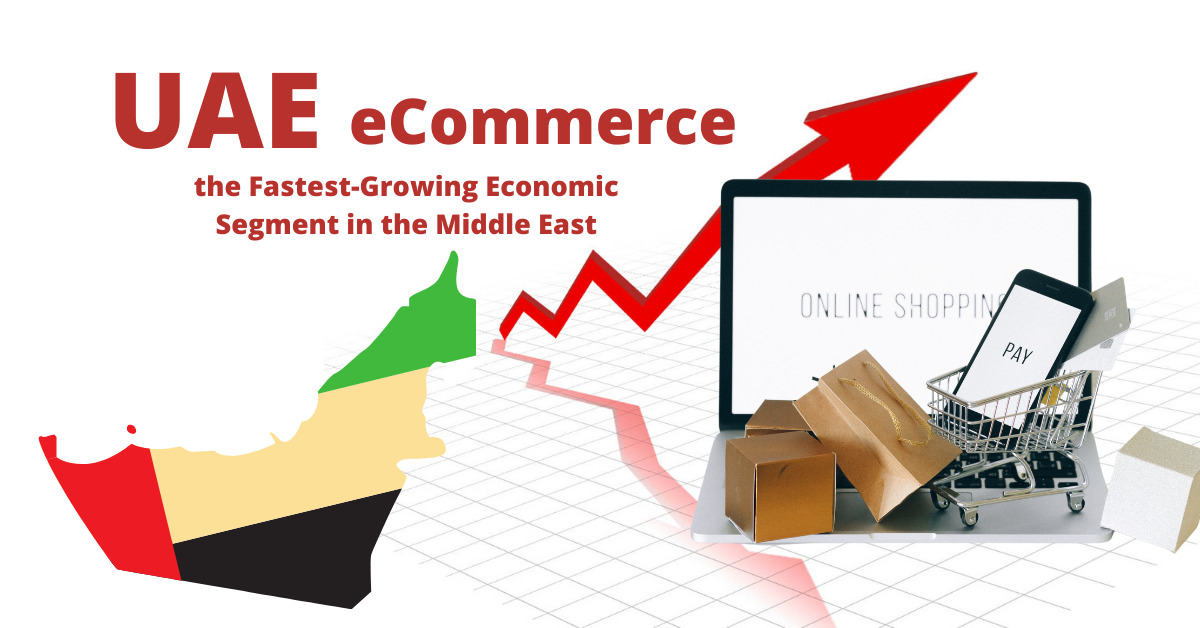

The UAE leading the eCommerce growth in the Middle East. In 2020, contributed to 75% of the eCommerce sales in the region, ‘eCommerce Sector in the UAE 2020 insights’, the UAE eCommerce sector emerged as the fastest-growing economic segment in the Middle East in terms of value sales, supported by rising digital connectivity, infrastructure and substantial growth in consumer electronics, apparel, and footwear.
Additionally, the UAE continues to maintain a healthy lead in average transaction size compared to both mature and emerging e-commerce markets, the average transaction value in the UAE was $122 in 2019-20, compared to $76 in mature markets, and $22 in emerging markets.
A joint study published by Dubai Economy and Visa, the world’s leader in digital payments, in November, said the UAE e-commerce sector is expected to see continued growth as more consumers demand online payment options and merchants increasingly recognize the need for an online presence amid the ongoing pandemic.
Another Visa study in partnership with Dubai Economy and Dubai Police, in June, found that 49% of UAE consumers surveyed have been shopping online more because of the pandemic, with three out of five (61%) now using cards or digital wallets more to make payments online instead of opting for cash on delivery.
The shift to paying online also indicates that e-commerce will account for a bigger share of total UAE card payment transaction values in 2020, compared to pre-pandemic predictions; up from 19.7% to 21.9%, the study said.
The findings examined the dynamic changes in the eCommerce market and presented a regional overview of the sector, evaluating its growth and future opportunities, taking trends as well as key major growth drivers into consideration, including COVID-led digital transformation and technological advancements that are set to reshape the industry moving forward.
Administrative penalties and fines of up to 100,000 UAE dirhams for companies that don’t comply with reporting beneficial ownership information will begin July 1.
The sector played a major role in boosting Dubai’s economy and that of the UAE, consolidating the emirate’s position as a regional hub for eCommerce by attracting leading movers and creating a sustainable ecosystem for a number of corporations.”
The findings revealed that the eCommerce growth in the Middle East is mainly driven by the UAE and Saudi Arabia (accounting for 75% of total eCommerce sales in 2020) due to the high purchasing power, expanded usage of social media, and smartphone penetration rates compared to other regional countries. E-commerce sales in Dubai are expected to rise 23 percent to US$27 billion (AED100 billion) in 2022.
According to the report, store-based retailing is expected to grow by a CAGR of 1% over the 2017-2022 period, while eCommerce is forecast to grow by a CAGR of 19% over the same period. Apart from the impact of COVID-19, online penetration in the Middle East is forecast to double to 6% by 2022, compared to 3% in 2019.
The digital revolution has been rewiring retail for years, leading to new business models, commerce ecosystems and channels for reaching and engaging consumers. The COVID-19 pandemic accelerated this transition, as eCommerce became the default option for many homebound consumers.
Digital sales value growth for the global retail sector over the 2020-2025 period will be digital that equates to USD1.4 trillion in absolute value growth as more goods are sold online; to put that projected eCommerce growth in context that would be roughly the size of the total value of products sold across all retail channels just five years ago.
ECommerce sector in the UAE and broader Middle East region is poised for growth, measuring a country’s digital landscape over time, reveals that the UAE is outpacing its emerging market counterparts on the index given its well-developed eCommerce infrastructure.
Self-checkout technology is being widely used in department stores, specialty stores, and small convenience stores to automate payments. Self-checkout systems are integrated with a mobile software application to collect purchase data and to automatically receive payment. They make use of Near Field Communication (NFC) or quick response code (QR code), which is a machine-readable optical label. This eliminates the need for checkouts, queues, loading and unloading and employees to operate the checkout counter. This type of automation reduces operational costs and saves the time spent on manual billing.
The region benefited from a solid and well-established infrastructure. According to the World Bank’s Logistics Performance Index (LPI) 2018, the UAE ranked 11th globally and the first regionally in terms of the efficiency of its customs, strong infrastructure, quality of logistics services, tracking and tracing. This has supported the country’s position as a leading logistics and e-commerce hub.
Free consultation and business setup inquiry.
For more details, please reach us
Tel: +00971 4 3245630
Fax: +00971 4 3245630
Email: info@uaefreezones.com